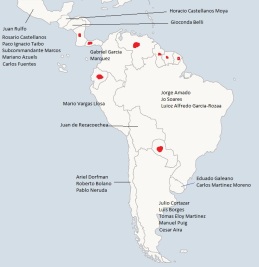
There are a few places, known to us through literature, that let themselves be re-discovered. One of them is the Caribbean coast of Colombia, the site of some of the greatest literary works of the 20th century- the novels of Nobel laureate Gabriel Garcia Marquez.
It is easy to fall into the trap of missing the actual place when visiting a place that one has known through literature. This is not true, however, when in Colombia, which Gabriel Garcia Marquez made immortal through his works, as a re-fabricator of its facts. Some of his greatest works, particularly his best known book, ‘One Hundred Years of Solitude’ as well as ‘Love in the Time of Cholera’ and ‘Of Love and other Demons’, derived much from two places that he lived and grew up in- the mofussil, and a rather nondescript town of Aracataca and the colonial city of Cartagena in Caribbean Colombia.
If Latin America found its literary voice in ‘One Hundred Years of Solitude’ it is ‘Love in the Time of Cholera’ in which Latin America found its hope and destiny. It was also the book and Macondo, the fictional place inspired by Aracataca, that encapsulated the whole of Latin America. Macondo became a byword for the school of writing that Garcia Marquez came to be associated with- that of magical realism. While his knowledge of Aracataca was deeply personal, that of Cartagena was based on his knowledge that he gained while working as a journalist in that city from 1948 to 1955.
Like most readers of ‘One Hundred Years of Solitude’, I was bewitched by the place he created his little universe in the fictitious land of Macondo. Almost three decades after I discovered ‘One Hundred Years of Solitude’ on a samosa wrapper made from the previous week`s newspaper drenched in oil, I had the opportunity to visit the town that has renamed itself Macondo, and where reality seems to aspire to its literary image.
In Search of Macondo
“Many years later, as he faced the firing squad, Colonel Aureliano Buendia was to remember that distant afternoon when his father took him to discover ice. At that time Macondo was a village of twenty adobe houses, built on the bank of a river of clear water that ran along a bed of polished stones, which were white and enormous, like prehistoric eggs. The world was so recent that many things lacked names, and in order to indicate them it was necessary to point”
– One Hundred Years of Solitude
The two of us travelled to Cartagena and Aracataca in March of 2019 to discover some of the places where Gabriel Garcia Marquez’s works are based. Gabriel Garcia Marquez, affectionately called Gabo in his native country Colombia, shot to worldwide fame with the publication of ‘One Hundred Years of Solitude’ in 1967, winning the Nobel Prize for literature fifteen years later. Continue reading “In Search of Macondo”





![51ZXl5Fj7ML._SL500_AA300_[1]](https://readerswords.files.wordpress.com/2014/04/51zxl5fj7ml-_sl500_aa300_1.jpg?w=195&h=195)
 Yan’s Life and Death are Wearing Me Out. In the process, I came to not only respect Mo Yan’s talented writing, but also gained a view of China through the second half of the long 20th century. On a side note, it is quite ironical that what is a very long read, took Mo Yan just
Yan’s Life and Death are Wearing Me Out. In the process, I came to not only respect Mo Yan’s talented writing, but also gained a view of China through the second half of the long 20th century. On a side note, it is quite ironical that what is a very long read, took Mo Yan just 


